Coronavirus: Birmingham's Nightingale hospital 'has no patients'
- Published
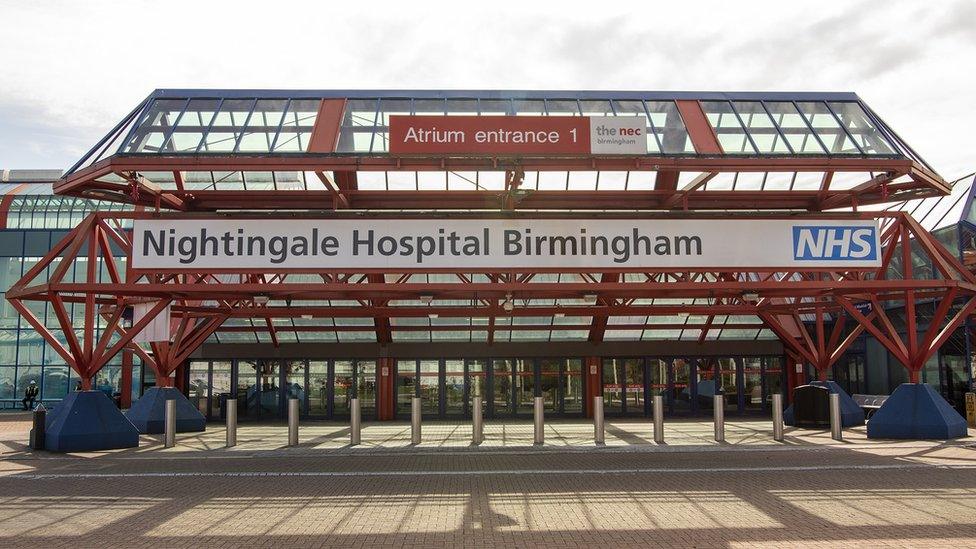
NHS bosses say it is a "good thing" that the Nightingale hospital has received no patients
Birmingham's Nightingale hospital is "not being used at all" 10 days after it was opened by the Duke of Cambridge.
Set up inside the National Exhibition Centre (NEC), the site is intended to take up to 500 coronavirus patients at a time from 23 Midlands hospitals.
The chief executive of University Hospitals Birmingham NHS Foundation Trust said it was a "good thing" the hospital had not received patients.
It showed the NHS had "absorbed" the extra pressure Dr David Rosser said.
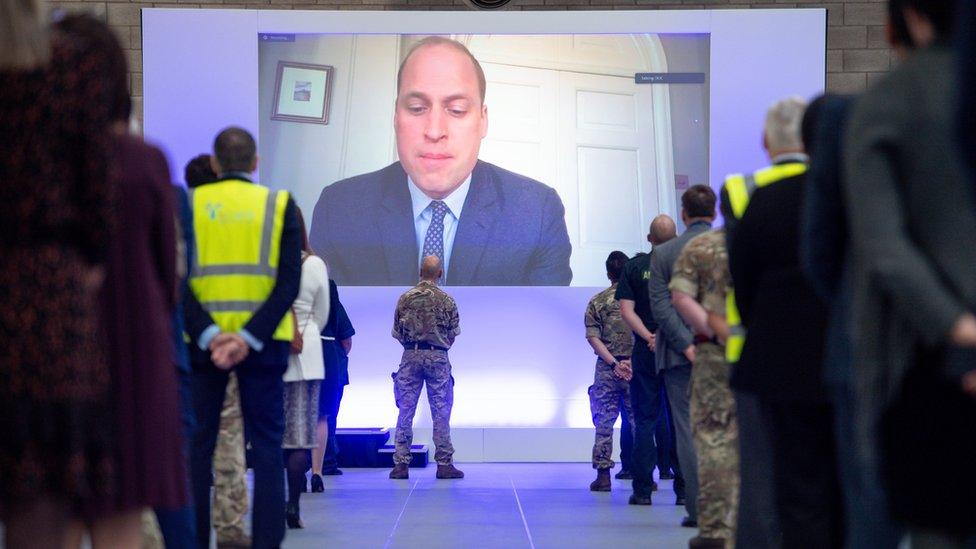
Prince William officially opened the NHS Nightingale hospital in Birmingham on 16 April
"It was never going to be a great thing to have to open this extra capacity because it didn't come with new staff," he said. "And of course the more beds you open the more you need to stretch."
University Hospitals Birmingham, which runs the temporary hospital, is the biggest NHS trust in England and last week had recorded more deaths than any other in the country.
There are now more than 148,000 confirmed coronavirus cases in the UK and more than 20,000 people with the virus have now died in hospitals.
Along with London, the Midlands has seen the highest number of deaths linked to coronavirus.
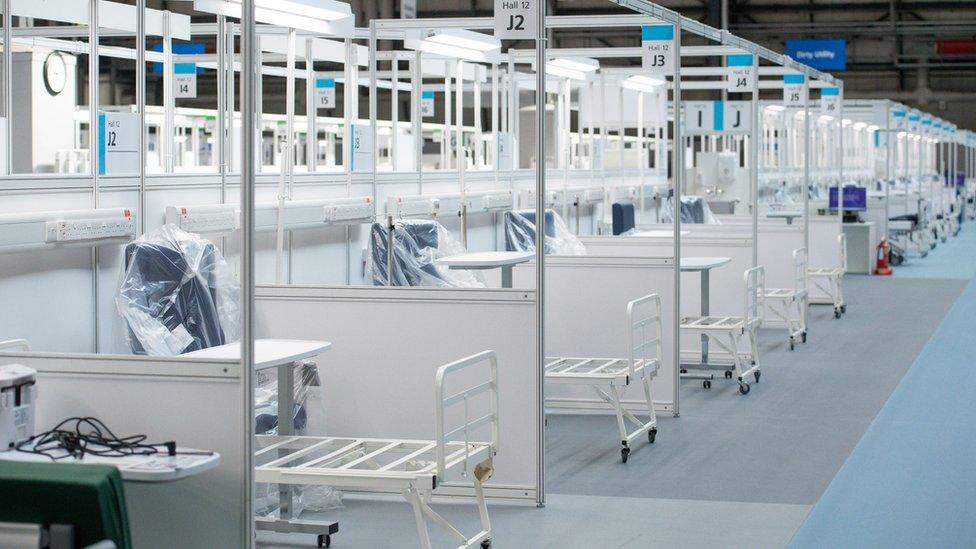
The temporary field hospital has an initial capacity of 500 which can be scaled up to 1,500

Analysis
By Michele Paduano, Midlands health correspondent, BBC News
Unlike the ExCel in London, Birmingham's Nightingale hospital was always devised as a step-down facility, so it would accept patients who had recovered sufficiently from coronavirus or who were not suitable for ventilation.
Fortunately, although the number of coronavirus cases have been significant, social isolating is working and the NEC has not been required for this purpose.
Trusts who have also had up to 20% of their staff off self-isolating or sick have not wanted to second employees to the new facility because their rotas are already stressed.
The Birmingham Nightingale is expected to be in use for 12-18 months and may be called upon if there is a second greater surge.

More than 400 civilian contractors, along with military personnel and about 500 clinical staff, were involved in building the temporary field hospital, which took eight days to build.
Dr Rosser said the trust was "hugely proud of getting it up and running but we're also paradoxically proud of the fact that we didn't need to use it".
However, he added that he felt trepidation about about lockdown restrictions being relaxed in case it "bounced back on the NHS quite quickly".
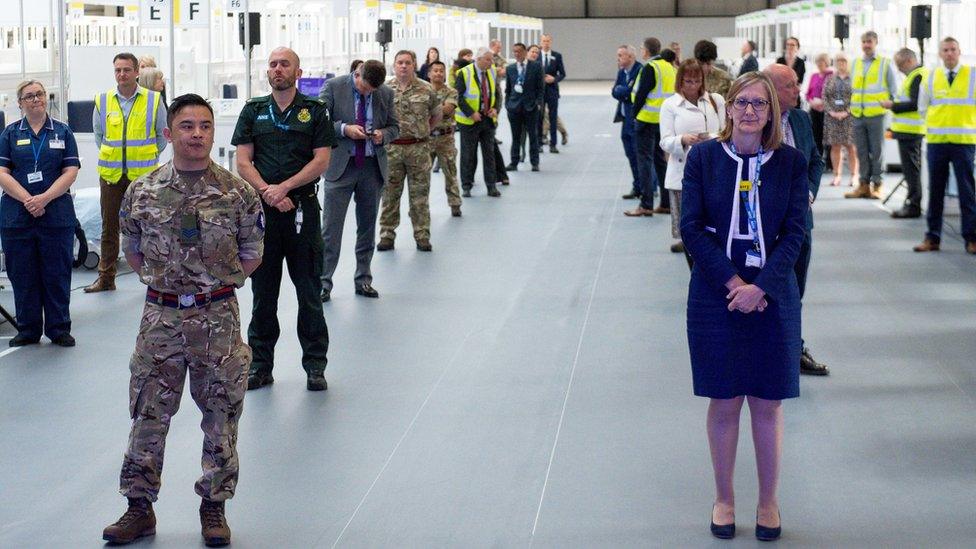
Dr Rosser said he was "hugely proud" at how quickly the hospital was made operational
The trust noticed an increase in cases a week after reports of people flouting the rules over the Easter weekend, he said.
Foreign Secretary Dominic Raab rejected calls for an early easing of the coronavirus lockdown, stressing that the outbreak was still at a "delicate and dangerous" stage.

A SIMPLE GUIDE: How do I protect myself?
AVOIDING CONTACT: The rules on self-isolation and exercise
HOPE AND LOSS: Your coronavirus stories
LOOK-UP TOOL: Check cases in your area
TESTING: Can I get tested for coronavirus?

Follow BBC West Midlands on Facebook, external, Twitter, external and Instagram, external. Send your story ideas to: newsonline.westmidlands@bbc.co.uk , external
- Published25 April 2020
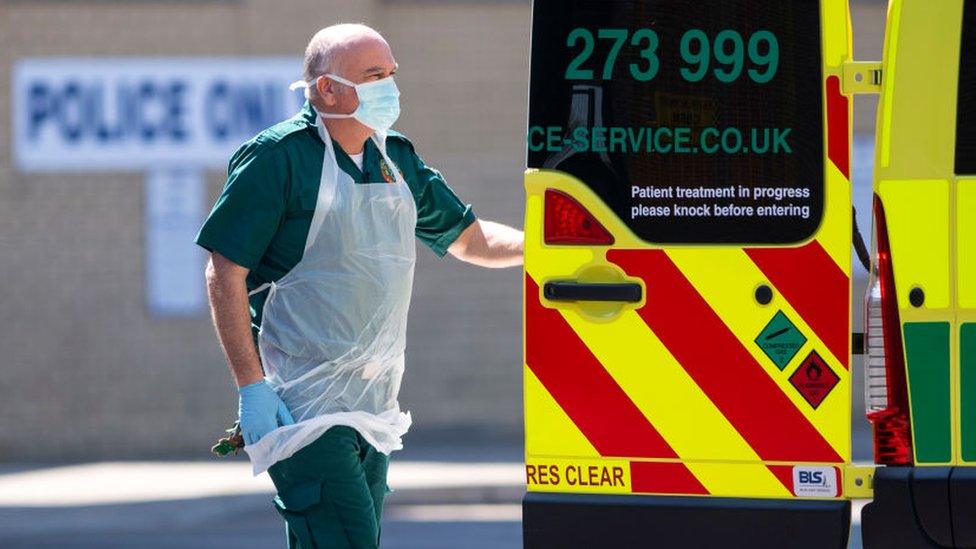
- Published5 July 2023

- Published16 April 2020
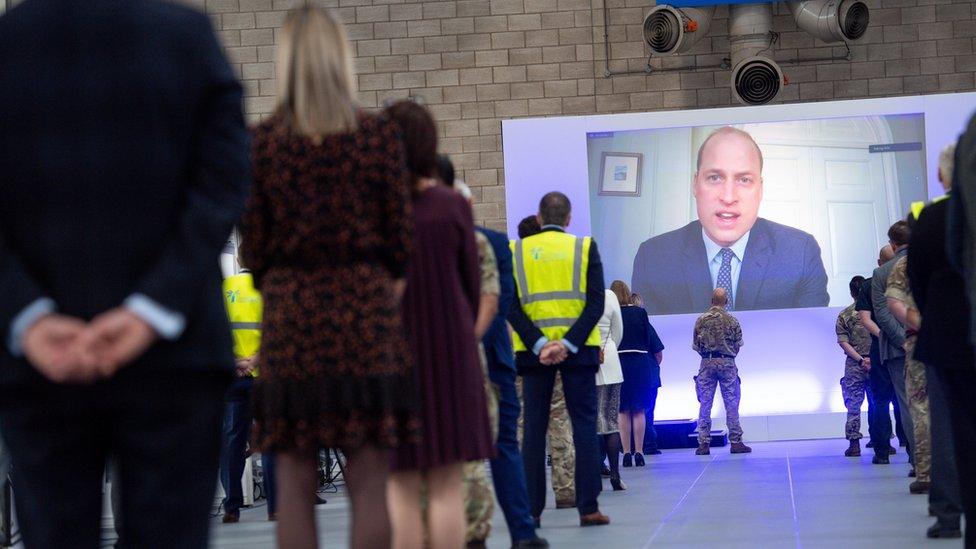
- Published10 April 2020

- Published8 April 2020
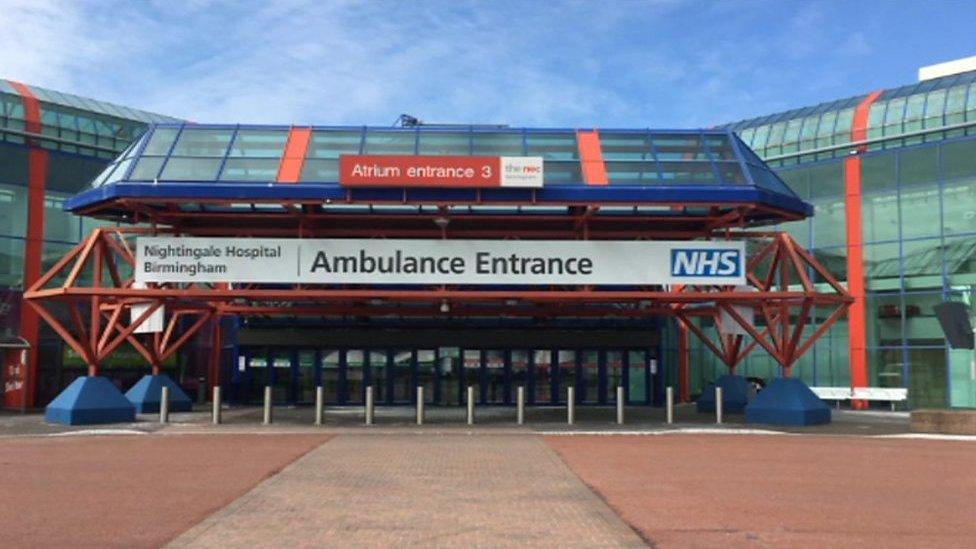
- Published7 April 2020
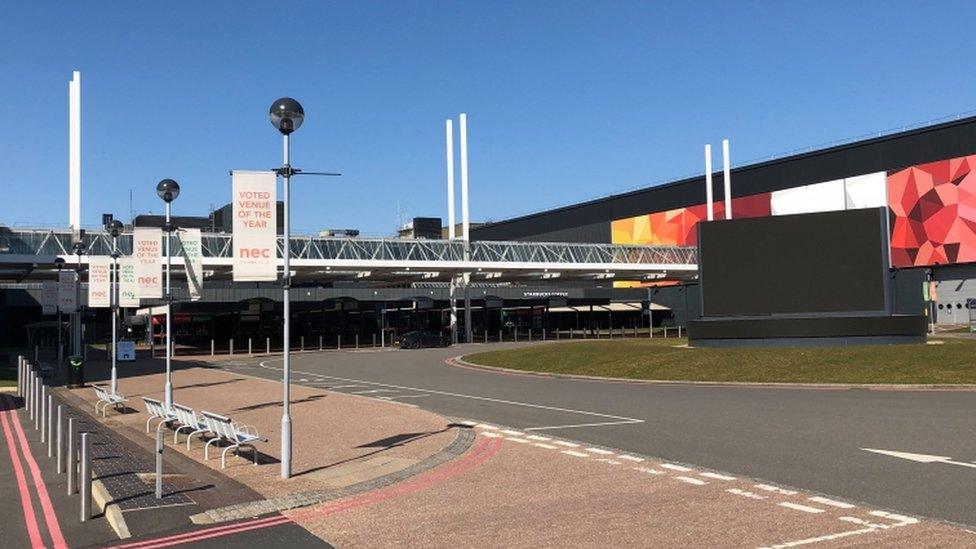
- Published6 April 2020
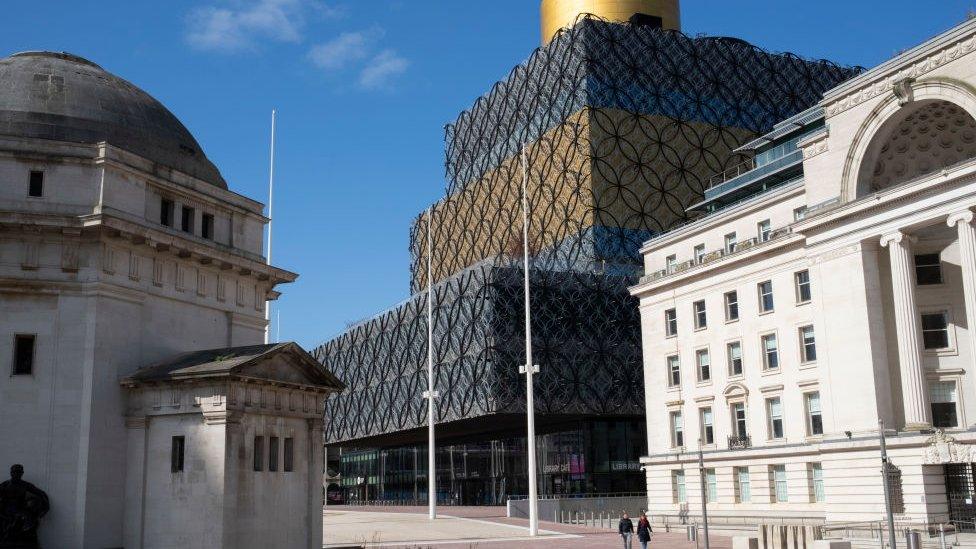
- Published3 April 2020
